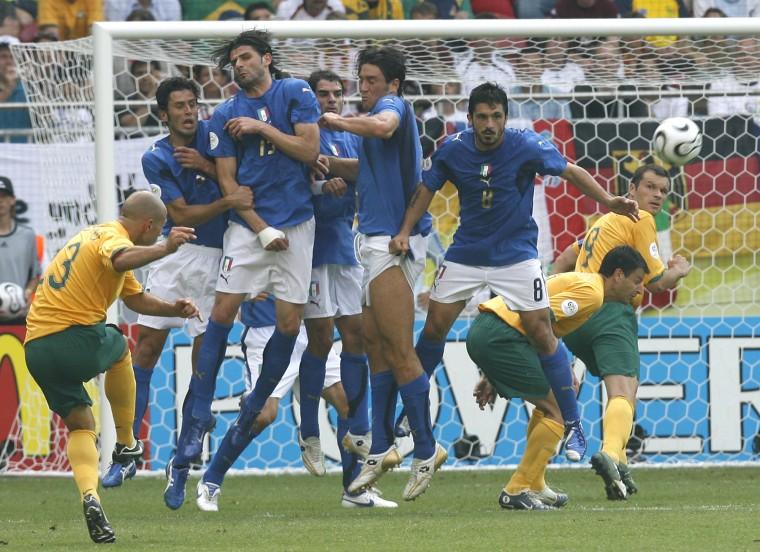Questionable call helps Italy
Jun 27, 2006
KAISERSLAUTERN, Germany – The Socceroos were tough on Italy. The referee was tougher on Australia.
Another questionable call in this World Cup showed Italy the way to the quarterfinal Monday, giving the Italians a penalty kick that Francesco Totti converted for the 1-0 win as time expired.
Moments earlier, Italy’s Fabio Grosso was dribbling a few strides from the goalmouth when Lucas Neill slid in front of him. The Italian cut in Neill’s direction and tried to leap clear, but tripped over the defender’s back.
To the amazement of the Socceroos, Spanish referee Luis Medina immediately ruled it a penalty with 12 seconds in extra time.
Totti, a second-half substitute, sent his penalty kick high and to the right of goalkeeper Mark Schwarzer, who guessed correctly but couldn’t stretch far enough to stop it. With no time left to restart, the Italians started celebrating.
Get The Daily Illini in your inbox!
“We suffered but we gave them no chances,” said Italy coach Marcello Lippi, whose team plays Friday in the quarterfinals against Ukraine. “This is an incredible joy.”
There was no joy for the Socceroos, whose howls of protest over the call gave way to head-shaking and resignment.
“I just can’t believe it, mate,” Australian forward Tim Cahill said. “It’s disappointing. I’m furious. It’s unbelievable. The luck we’ve had with refereeing decisions this World Cup. Everything’s been against us.”
About the only people in the Fritz-Walter-Stadion who thought Grosso was fouled were the Italians – and Medina.
It was another match filled with yellow cards and one ejection – a growing trend at this World Cup. The red card against Marco Materazzi was the 24th in this tournament, already a record with 11 matches left.
The ejection gave the Australians a man advantage for the last 40 minutes of the game, but Australia couldn’t capitalize.
“I never feared being eliminated,” Lippi said. “We still had the extra time, the penalties. We had had scoring chances, four or five, and even when we were down to ten players, we remained well organized. Italy has shown a great heart.”
It was the Australians who showed that a team ranked just 42nd in the world – in just its second World Cup, its first since 1974 – could compete with traditional soccer powers. In Germany, the Australians scored their first World Cup goals (five total), their first victory (3-1 over Japan) and riveted a nation that stayed up late and partied later when the Socceroos played.
Winger Harry Kewell, man of the match in the 2-2 draw with Croatia that earned Australia a place in the final 16, missed the game with what turned out to be gout in his foot. He supported himself with crutches as he watched from the bench.
The Aussie defender lamented that referees always seem to favor the powerhouse teams.
“They look after the big nations,” Chipperfield said. “They want the big nations through to the semis and finals. It’s always the way.”
He pointed to other refereeing controversies at the tournament.
“A lot of the games, everyone’s talking about the referee, which shouldn’t be the way. They should be talking about how good the game is. Not the refereeing. It’s something that needs to be looked at.”
Australia coach Guus Hiddink said his players were sure there was no foul on the final play, and described Neill as despondent in the locker room, quietly sitting in one corner.
“You feel guilty if you cause a penalty,” Hiddink said. “But, in this case, it was so bitter and that makes it doubly sad for him not committing a foul.”






